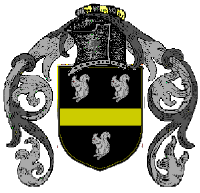|
| |

|
 |
|
 Aft 1582 - 1663 (< 80 years) Aft 1582 - 1663 (< 80 years)
-
| Name |
Cooke, Francis |
| Birth |
Aft Aug 1582 |
probably England  |
| Gender |
Male |
| Death |
7 Apr 1663 |
Plymouth Colony, MA  |
| Person ID |
I2357 |
My Genealogy |
| Last Modified |
20 Dec 2024 |
| Family |
Mahieu, Hester d. Aft 1666 |
| Marriage |
4 Jul 1603 |
Leyden, Holland  |
| Children |
| | 1. Cooke, Jane, b. Abt 1604, Leyden, Holland  d. Aft 1631, Plymouth Colony, MA d. Aft 1631, Plymouth Colony, MA  (Age > 28 years) [Father: natural] [Mother: natural] (Age > 28 years) [Father: natural] [Mother: natural] |
| | 2. Cooke, John, b. Abt 1606 d. 1695 (Age 89 years) [Father: natural] [Mother: natural] |
| | 3. Cooke, Elizabeth, b. Abt 1611 d. Bef 1627 (Age < 15 years) [Father: natural] [Mother: natural] |
| | 4. Cooke, Jacob, b. Abt 1618 d. 1675 (Age 57 years) [Father: natural] [Mother: natural] |
| | 5. Cooke, Hester, b. Aft 1620 d. Aft 1669 (Age > 49 years) [Father: natural] [Mother: natural] |
| | 6. Cooke, Mary, b. Aft 1626 d. 1714 (Age < 86 years) [Father: natural] [Mother: natural] |
|
| Family ID |
F1010 |
Group Sheet | Family Chart |
| Last Modified |
20 Dec 2024 |
-
-
| Notes |
In the early 1600s, many English men and women began to question some
of the teachings of the Church of England that had been founded by
Henry VIII in the previous century. Some of these individuals remained
members of the church but tried to "purify" it from within, and were
called "Puritans". One group of Puritans founded MA Bay Colony at
Boston in 1630.
More radical individuals believed that the church was too contaminated
by "error" to be salvaged, and these individuals separated from the
church. The so-called "Separatists" were persecuted by the monarchy
and to a lesser degree by the Puritans, and a few congregations of
Separatists fled to Holland, where the Separatists' religious views
were tolerated. Francis Cooke arrived in Holland as early as 1603, and
he was or became a member of the congregation of Clyfton/Robinson
Separatists who came from Scrooby, England to Leyden, Holland.
Francis' spouse Hester Mahieu was a French Huguenot (that is, a French
Protestant). Her mother was Jennie le Mahieu and her father may have
been Jacques Mahieu.
Although the Separatists were able to worship freely in Holland, they
found that it was very difficult to make a living there. (Most of the
Separatists had been farmers in England, and they had to learn new but
lower paying job skills in urban Holland. For example, Francis became
a woolcomber.) The Separatists also discovered that their children
were slowly slipping away from the Separatist faith in easy going
Holland, and in fact were becoming more Dutch than English.
Accordingly, the Clyfton/Robinson Separatists entered into an
agreement with a group of "Adventurers" (venture capitalists, really)
in England pursuant to which the Adventurers would pay for the passage
of some of the Separatists to America in return for a certain
percentage of the fruits of their labors. The Adventurers also
financed the passage of a number of passengers who came to America for
purely economic reasons and who were called the "Strangers" by the
Separatists. Francis Cooke and his son John came to America with the
first group of Separatists on the Mayflower in 1620. Francis Cooke was
a signatory to the Mayflower Compact, which first established the
principles of democratic government in America. Congregationalist
churches evolved from the Separatist congregations that came to
America.
Either by accident or design, the Mayflower did not land as intended
at Jamestown, VA Colony but instead arrived at Cape Cod in November.
The Mayflower passengers founded a new colony at Plymouth. Francis and
John both survived the first winter in which almost half of the
passengers perished.
|
|
|
|
|